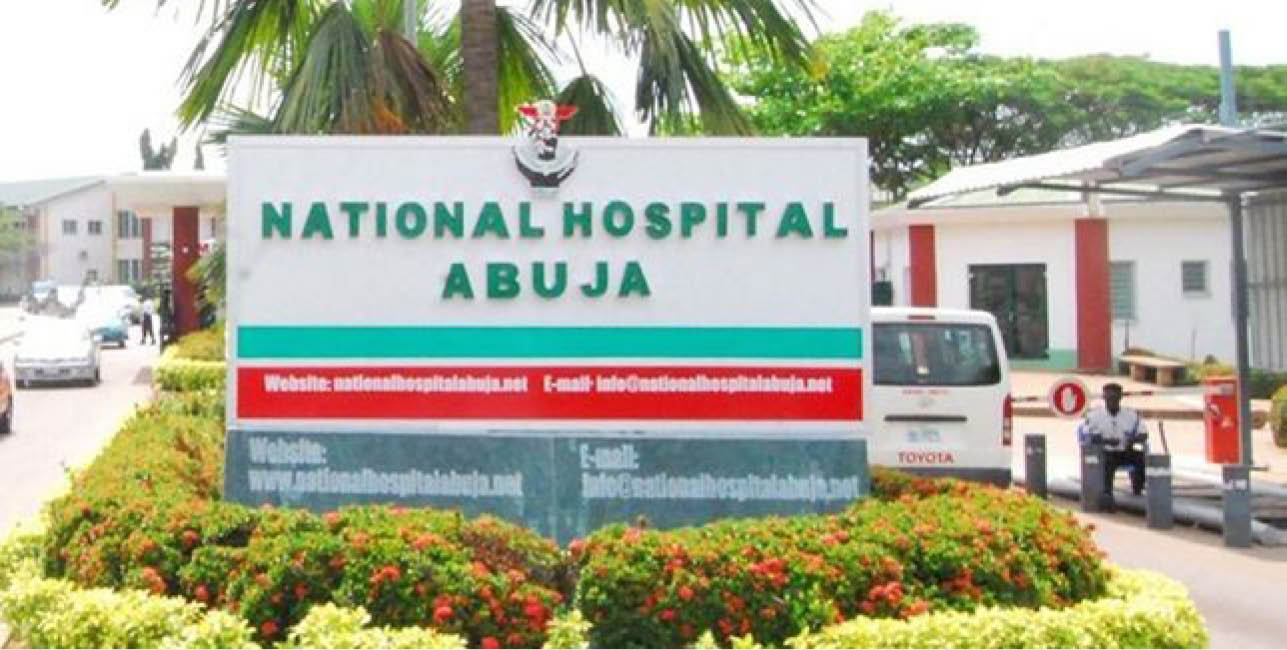EMR: National hospital patients lament loss of medical history
Some patients of the National Hospital, Abuja have lamented the loss of their medical histories as a result of the hospital’s switch from paper health records to electronic medical records. Electronic Medical Records (EMRs) is a digital version of the traditional paper-based medical record for an individual. It is designed to contain and share information […]

Some patients of the National Hospital, Abuja have lamented the loss of their medical histories as a result of the hospital’s switch from paper health records to electronic medical records.
Electronic Medical Records (EMRs) is a digital version of the traditional paper-based medical record for an individual. It is designed to contain and share information from all providers involved in a patient’s care. EMR data can be created, managed and consulted by authorized providers and staff from across more than one healthcare organization.
Some of the patients who have been receiving care from different departments and units of the hospital for several years, said their digital files do not contain any of their medical histories and that they have since last year been faced with doctors giving them new treatment that do now align with their previous histories, or subjecting them to questions as if they were visiting the hospital for the first time.
A patient who simply wants to be identified as Saratu said she has been a patient at the hospital for five years for a respiratory disease. She said the tests she has done, previous medicines and treatments she had undergone, used to be in her paper folder but that with the switch over, none of the information was transferred to the digital format.
FG saved N300bn by redesigning 2nd Niger Bridge – Umahi
FG sets up c’ttee to address challenges in telecom industry
“The doctor had no access to any of the information that used to be in my folder and it was like I was coming to the hospital the first time,” she said.
Gloria Orji, another patient with the hospital said the “hospital changed its software that had medical records of all patients. Though it is laudable that they want to have records on the system, they failed to key in the past medical records of patients.
“It is completely wrong for doctors not to know your previous treatments and be asking the patients names of drugs they have been taking and the type of treatments they were on. I for one cannot pronounce the names of these drugs.”
Orji, who is also a cancer survivor and president, Network of People Impacted by Cancer in Nigeria (NEPICIN), said cancer patients were usually managed based on their medical records, adding that with the loss of medical history at the National Hospital Abuja, “no doctor can give his best when asked to treat blindly. I can’t even begin to imagine the type of havoc these may have been causing patients.”
She explained that before the last few months, the hospital was using paper folders that had each patient.
“Now instead of getting their staff to input these records on each patient’s folder on the system, they didn’t do that. I was at the hospital on Monday and when they keyed in my new hospital number, the doctors told me that everything was blank. They started asking me about my medical history of over 13 years.
“How can I start explaining? Even the doctors complained bitterly to me when they discovered I was a patient advocate. They said with what is happening they can only treat based on the present.
“I was also at the clinic last year September to see my oncologist and she told me, “There’s nothing on the system to guide me.” On her own she started keying in some records she knows about me.
“They started electronic medical records last year and without warning dumped the old for the new. I didn’t expect such a clean break, especially when it has to do with patients’ past records.
“By January this year, they have changed all patients’ hospital numbers. And when I presented on Monday they told me my records were blank on their system. Unfortunately, it was the resident doctors that were on seat as my oncologist stepped out so they knew next to nothing about me.”She further said, “Even the new hospital numbers they ascribed to all patients are a nightmare. Many cancer patients who had appointments could not see their doctors; they had to queue for hours at the records.
“After queueing, you will have to rebook your appointment. They treated patients as if whatever happened to them was of no consequence.”
Another male patient at the urological department who craved anonymity said it is important for all information on their folders to be transferred to the digital platform.
He said it was disappointing and exhaustive for him to discover that none of his medical history over the last three years was available to the doctors he met after travelling all the way from the South East. He said even though he was given treatment, the availability of his records would have helped the new doctor he met.
When contacted, the spokesman of the National Hospital Abuja, Dr Tayo Haastrup, said the hospital had been doing electronic medical records for about five years, and that the current issues patients were facing were due to a change in the company managing the EMR system.
He said the hospital was working assiduously towards addressing the challenges.
